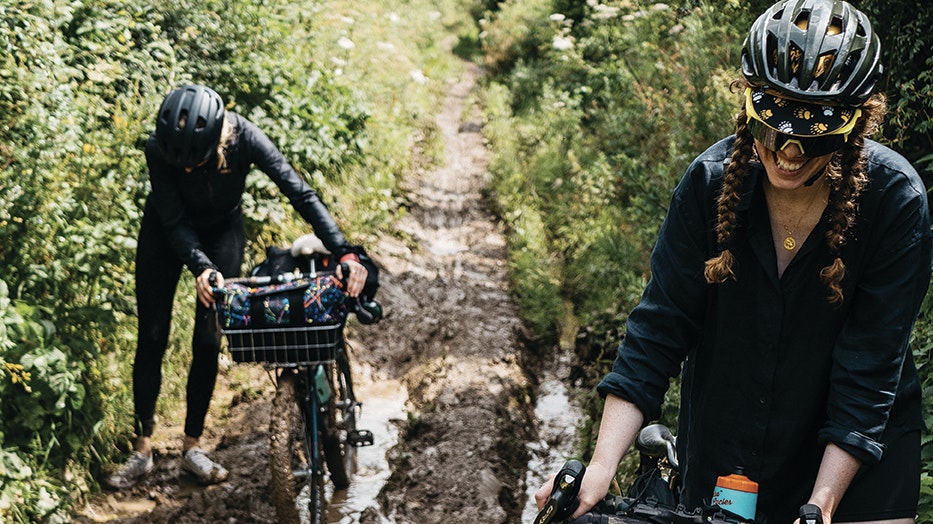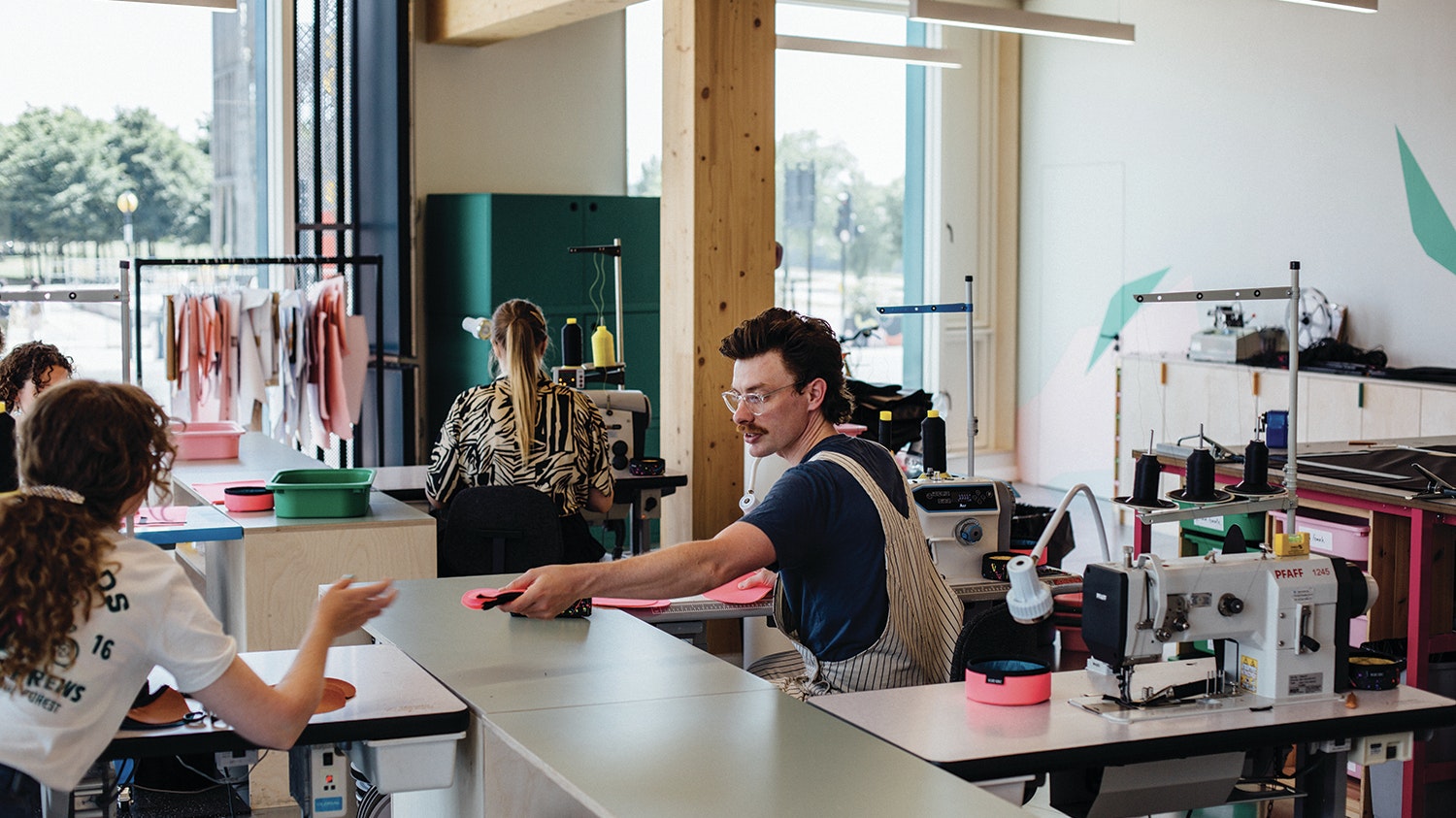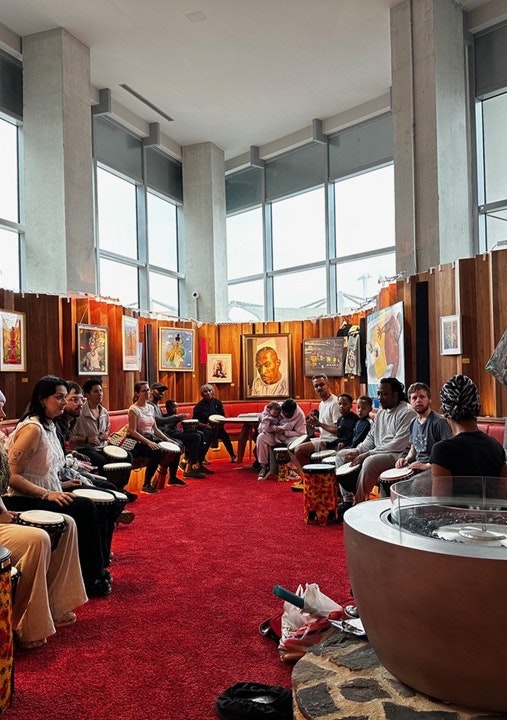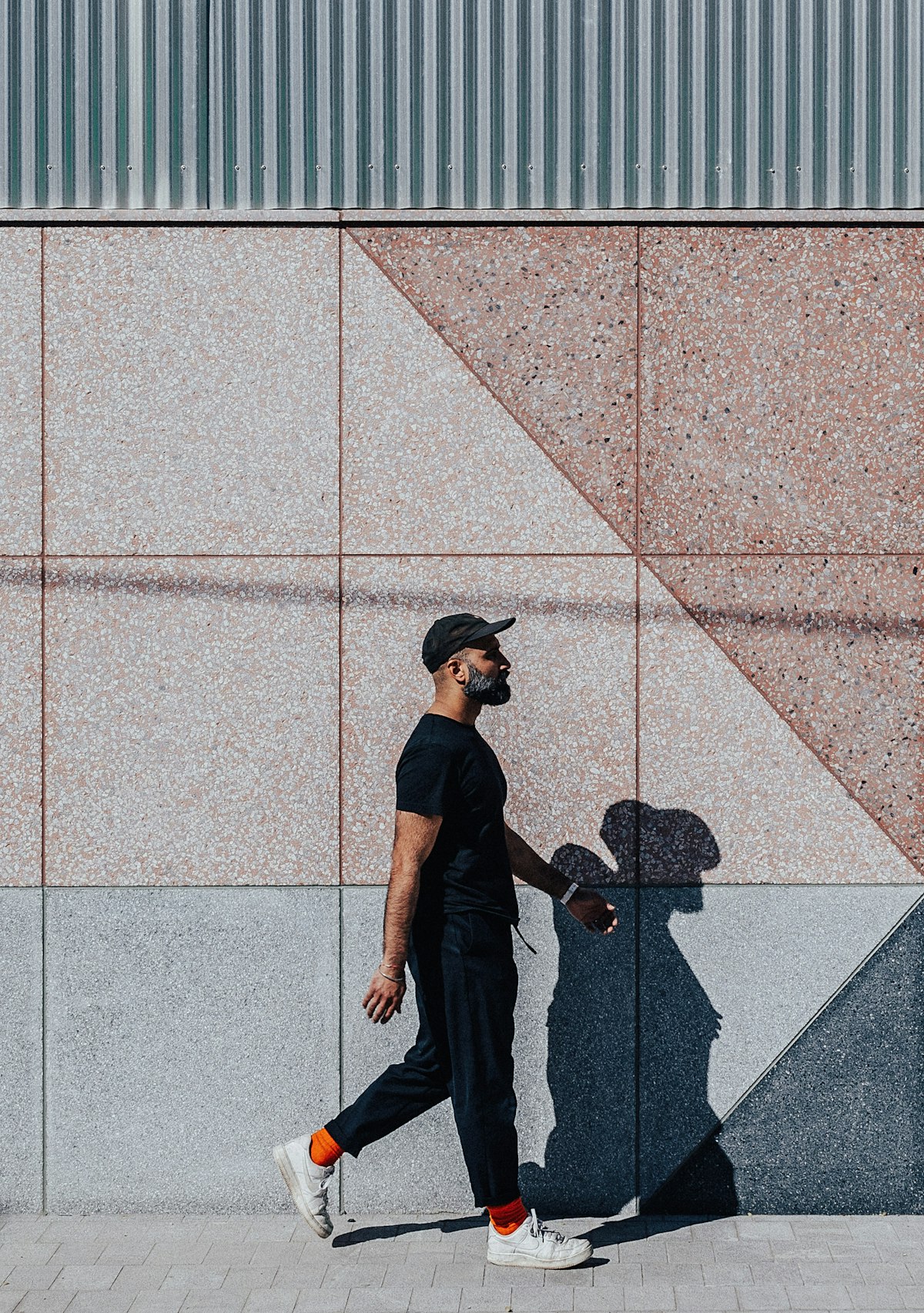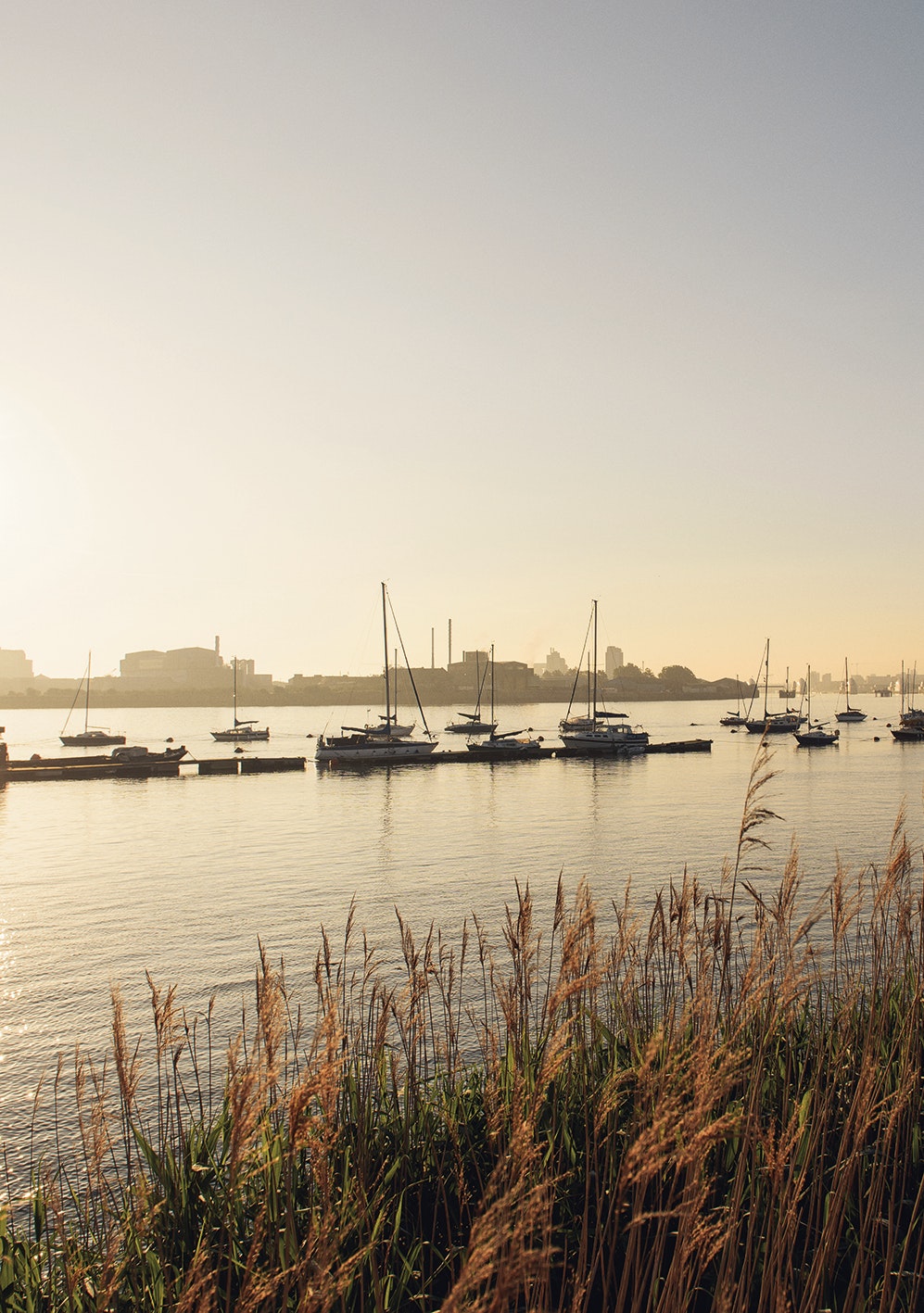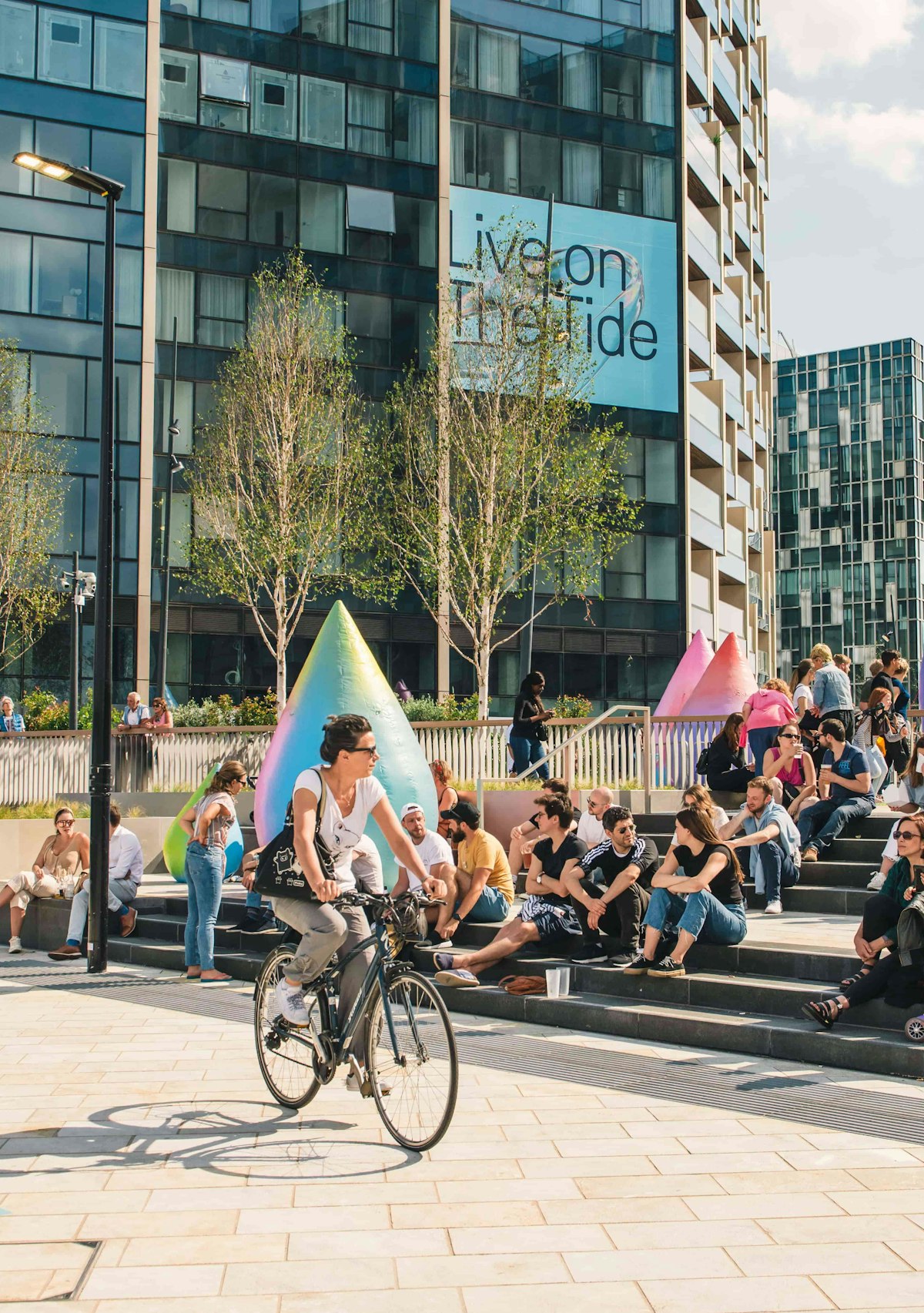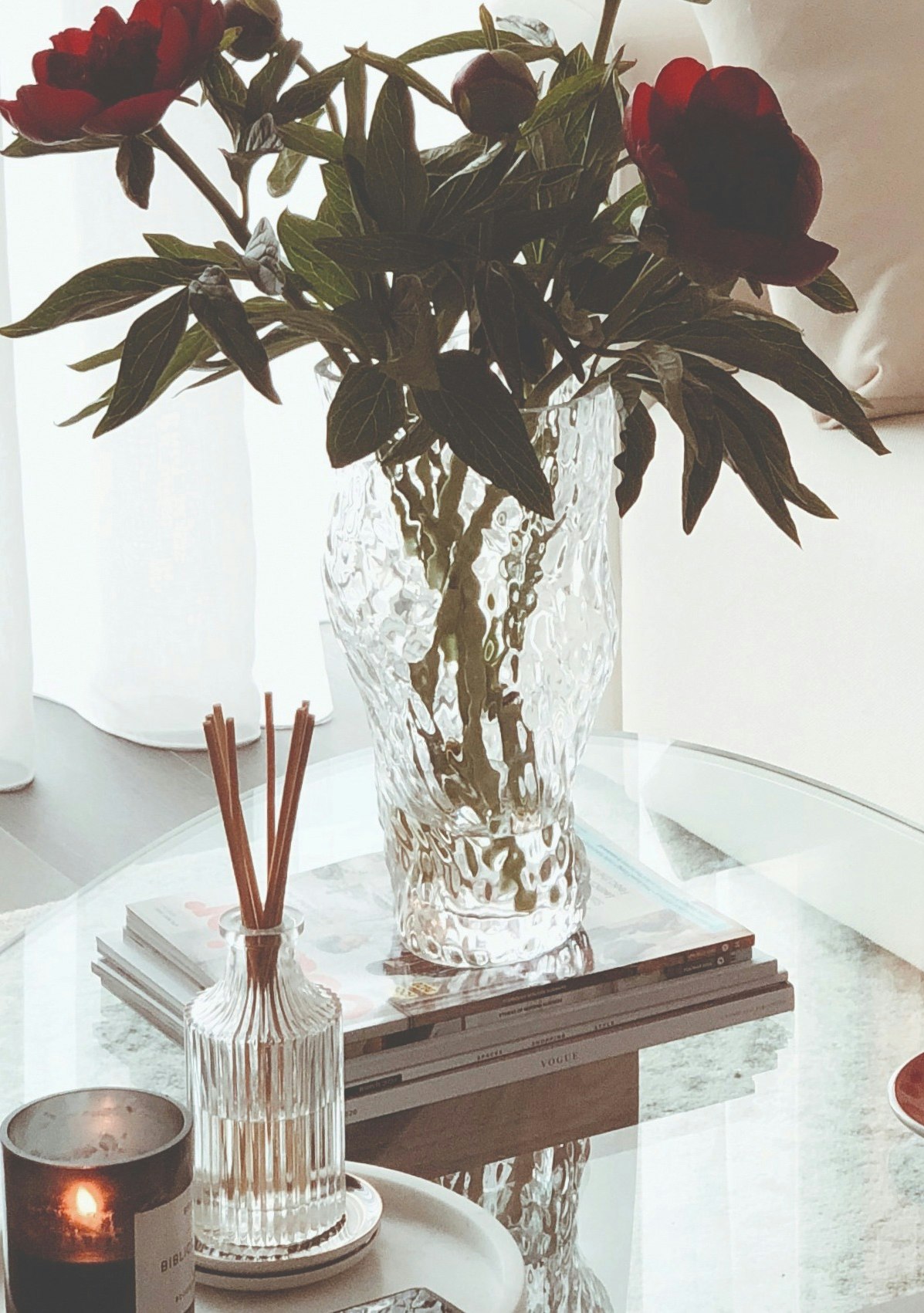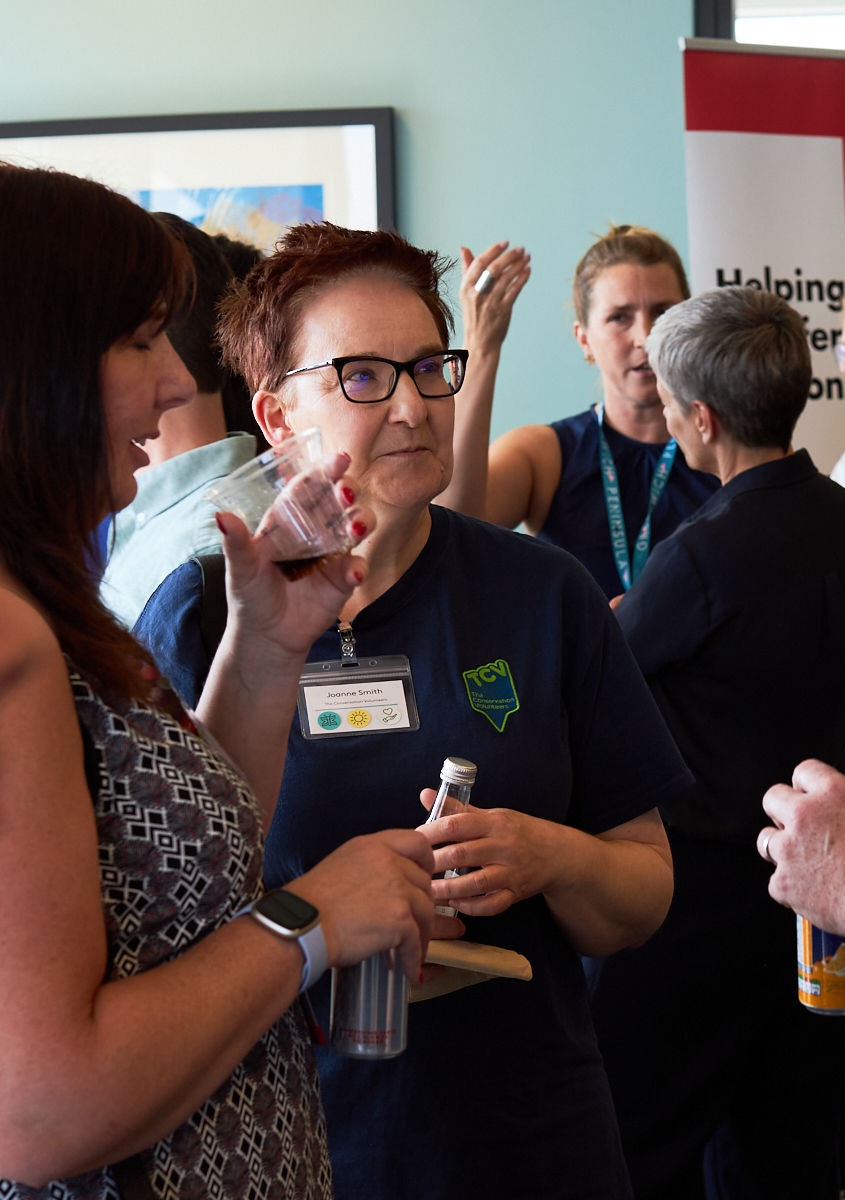
On Yer Bike
How a community of London cyclists are on a journey to make two-wheeled travel more accessible.
When Veronica Lowe and Harry Major set off on a year-long bicycle trip across Japan and Malaysia in 2015 they were expecting it to change their lives, but they definitely weren’t banking on it becoming their livelihood. Seven years later they’ve gone from being enthusiastic rookie cycle tourists to producing some of the most respected bikepacking equipment on the market from their studio in Greenwich Peninsula’s Design District, and now they’re on a mission to make cycling as accessible as possible, one bag at a time.
Their company, Wizard Works, specialises in handmade bikepacking luggage “with an aesthetic that lies somewhere between timeless classic and 80’s rave”. Their super-robust technical equipment – saddle bags, bar bags, tool rolls, snack pouches, to name just a few – lets you go anywhere on two wheels, whether that’s a daily commute or an intercontinental adventure. But unlike most other bikepacking brands, you don’t have to look like a black-clad ultra-endurance ninja while you do it; which is nice. “Our bags perform really well, but they also look cute,” says Veronica.
“But what’s that got to do with accessibility in cycling?” I hear you ask. Great question. Like a lot of folks who love to get around by bike, Harry and Veronica were drawn to bikes for their simplicity and sustainability. We’re living through a climate crisis and Wizard Works want to facilitate carbon-free travel as best they can. But the cycle scene they encountered when they first landed in London wasn’t at all inclusive, and you can’t kickstart a cycling revolution unless everyone’s invited.
Harry and Veronica are far from being the only ones to have noticed a lack of diversity among Britain’s cyclists. When Philip Diprose and his brother Andrew founded The Ride Journal back in 2009, the only forms of cycling portrayed in magazines and on television were aggressive, male and overwhelmingly white. “People who didn’t fit this mould or aspire to fit into it were seen as outcasts,” he says. “There were always other riders doing their own thing but it was never shown, or if it was it was shown as something weird. Cycling can be so many things it seemed strange that it was so focussed on the pro male racing image that was projected.”
The Ride aimed to showcase the breadth of what cycling could be and encourage people to share their own stories and unique experiences of time spent on a bike. “We very much wanted to make riding more accessible, but our ethos was just about telling people’s stories. My favourite pieces were often only tangentially about cycling and totally about the people.”
When The Ride ceased publishing after ten issues, Andrew and Philip turned their attention to creating a community fundraiser, North London Dirt, that invited participants to race an elaborate off-road route out of the city and into the Essex countryside and back. “Coffee at the start, beer at the end, and a route that takes you unexpected ways through places you thought you knew,” says Philip. But while the magazine had painted a diverse picture of cycling on paper, getting a diverse group of riders together in person proved slightly more challenging.
“When we looked around at the people taking part in the early North London Dirt rides we saw amazing friendly folk, but we didn’t see the diversity that we love in our city.”
To help ensure that North London Dirt was a welcoming place for all kinds of riders, Andrew and Philip reached out to Ride4Unity and Taylor Doyle, a community builder and inclusion advocate at Stayer Cycles and Brother Cycles, Co-Founder of Steezy, an inclusive cycling collective for women, non-binary and trans riders, and the founder of the Ultra Distance Scholarship, an initiative founded to elevate representation in the discipline of ultra distance racing — more on which later.
Since co-founding Steezy in 2019, Taylor’s bread and butter has been widening participation in cycling. Steezy worked with Andrew and Philip to find the language to talk more clearly about inclusion in cycling, and to ringfence tickets for women, non-binary and trans riders at North London Dirt events. For Philip, these are only the first steps. “It will be an ongoing change,” he says, “but even looking around at this year’s event it felt like some real steps had been taken. If riders see people like themselves in photographs, on social media and talking about events like ours then they will hopefully see they are all welcome and that they should at least try it.”
In some cases however, just being made to feel welcome isn’t enough, and it takes ongoing investment and support to allow marginalised riders to participate in a sport that can be both unwelcoming and financially exclusionary. In 2020, during the height of the BLM protests in the USA, a huge number of communities and organisations were discussing how to address these barriers to access for people of colour; “Within the cycling community, we were having conversations about how we could make cycling more inclusive,” says Taylor, “and I remember asking myself exactly what it was I had access to that wasn’t just words. And it was my connections in the cycling community.”
“We both feel that running a brand like wizard works gives us a platform and a little bit of power,” says Harry. “it’s important to use both of those things as a force for good in all respects. If we can partner with a programme that’s promoting diversity in cycling,” says Harry, “for us it’s a no-brainer.”
So she got in touch with the organisers of the Pan Celtic Race – an ultra-endurance ride through the Celtic nations – spoke to her employers at Stayer, and basically everyone else she knew in the industry, and put together a scholarship for riders of colour looking to break into endurance riding. Thus the Ultra Distance Scholarship was born. Each year, three BPOC entrant riders are given a brand new Stayer bike and 10 months of professional coaching for a long-distance endurance race, as well as performance clothing from Albion, training software and hardware from Wahoo, and bikepacking bags from (and here we come full circle) Wizard Works themselves.
The programme is already bigger than Taylor could have imagined and is, she believes, offering scholars a life-changing experience and access to “the magic of the cycling community” that has been so important in her own life. Ideally though, she hopes that one day the scholarship will be obsolete. “I don’t want to be running it forever,” she says. “For now it’s only going to grow, but in an ideal world it wouldn’t have to exist.”
For the time being, Veronica is glad that it does. “I just think it’s great that Taylor’s working to diversify this sphere of riding,” she says, “because ultra-endurance racing is especially white and male-dominated.”
For Wizard Works, doing business means making a positive impact, whether that’s by creating an inclusive workspace where staff are fairly treated and paid, by using materials that are sustainably made and free from poisonous fluorocarbons, or by supporting more riders to get into cycling. “We both feel that running a brand like Wizard Works gives us a platform and a little bit of power,” says Harry. “It’s important to use both of those things as a force for good in all respects. If we can partner with a programme that’s promoting diversity in cycling,” says Harry, “for us it’s a no-brainer.”
That ethos is also reflected in their plans to evolve the range to better suit smaller riders – an often neglected demographic when it comes to bikepacking. “We’re working on bags that enable smaller riders who use smaller bikes to carry the same amount of stuff,” says Harry. “A lot of our bags are dependent on people being able to have the clearance on their frames to fit things in. But if we want to make our brand more inclusive, and cycling more inclusive, then we need to produce bags for shorter people too.”
So if you’re new to the world of cycling, then Wizard Works, Steezy, Ride4Unity, North London Dirt and the Ultra Distance Scholarship are good places to start, and you’re sure of a warm welcome at each. And if you’re still not sure whether travelling by two wheels is for you, here’s a final word from Philip to help persuade you.
“Bikes are a mode of transport – a way to get to work, a way to carry shopping home – but they are so much more: Community, training, adrenaline fix, escape, competition, solitude, exploration, freedom and a reset for the soul. What other machine offers that?”
Wizard Works can be found at Unit 1, Design District Building D2, 3 Dormer Yard, London SE10 0EB. www.wizard.works
